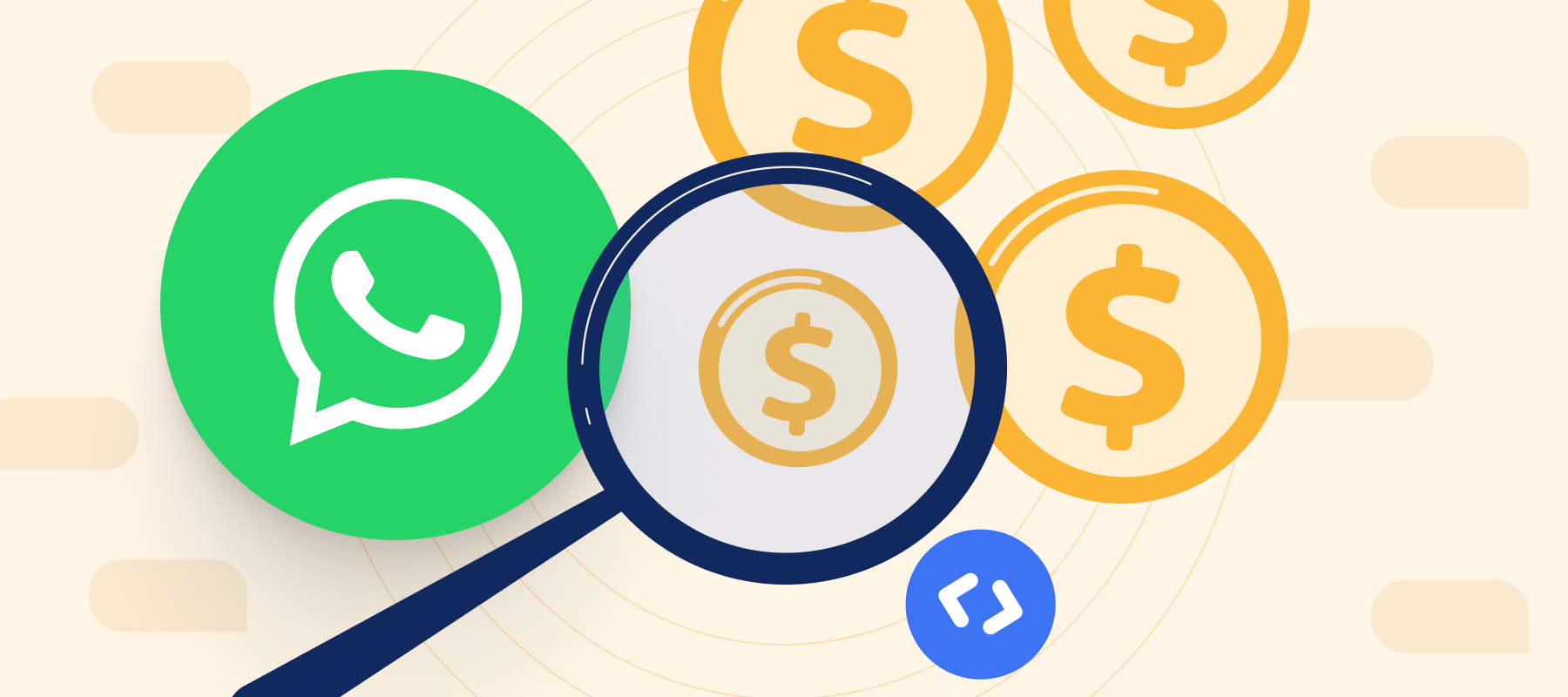WhatsApp Business API is changing how businesses communicate. While its automation, message templates, and integrations offer immense value, many businesses hesitate to adopt it.
And it’s not because they don’t see the potential but because they’re unsure about the costs.
Unlike the free WhatsApp Business app, the WhatsApp Business API requires working with a solution provider, which comes with a price. Some hidden charges can quickly add up, catching businesses off guard.
In this post, we discuss these hidden costs so you can budget wisely and avoid unexpected expenses.
What is the Standard WhatsApp Business API Pricing Structure?
Here is the standard WhatsApp business API pricing Structure:
1. Conversation-Based Pricing
Instead of charging per message, WhatsApp follows a conversation-based pricing model. A conversation is a 24-hour messaging window between a business and a customer. There are two key types:
– User-Initiated Conversations (UIC): If a customer starts the chat, businesses can reply within the next 24 hours without incurring additional charges.
– Business-Initiated Conversations (BIC): If a business starts the chat or messages a customer outside the 24-hour support window, a new paid conversation begins.
2. Conversation Categories
WhatsApp classifies business-initiated conversations into different categories, each with its own pricing:
– Utility Conversations: Messages related to transactions, such as order confirmations, shipping updates, and appointment reminders.
– Authentication Conversations: Messages that verify user identity, including OTPs and login authentication codes.
– Marketing Conversations: Promotional messages, special offers, product suggestions, and re-engagement messages designed to boost customer interaction.
3. Free Tier & Additional Charges
WhatsApp provides businesses with 1,000 free user-initiated conversations per month. However, once this limit is reached, additional conversations for both user-initiated and business-initiated are chargeable.
Pricing is not fixed and varies by country and region. Moreover, providers may have varying costs depending on their pricing structures and additional services.
4. Partner (BSP) Markups
Working with a WhatsApp Business Solution Provider (BSP) like Interakt has added costs.
While WhatsApp has its pricing, BSPs often charge subscription fees, markups on conversations, or both for their extra features, such as automation and integrations.
The good news is that Interakt offers one of the most flexible pricing models with affordable plans. Our conversation rates are among the best in the market, keeping costs low while delivering advanced features.
Potential WhatsApp API Hidden Fees to Consider
Here are some hidden costs businesses should watch out for when using the WhatsApp Business API:
1. Business Solution Provider (BSP) Markups
BSPs act as intermediaries and often add their markups to WhatsApp’s official pricing. This could include per-conversation fees, bundled service charges, or premium plans for advanced features.
2. Setup and Onboarding Fees
Some BSPs charge a one-time setup fee to activate your WhatsApp Business API account. This covers configuration, API integration, and connecting your number to their platform.
3. Monthly Subscription Costs
Unlike WhatsApp’s pay-per-conversation model, most BSPs operate on a subscription basis. However, plans can increase significantly based on features like automation, CRM access, and multi-agent support.
4. Per-Conversation Charges Beyond Free Limits
WhatsApp gives businesses 1,000 free user-initiated conversations per month. Once this limit is crossed, both user-initiated and business-initiated conversations are chargeable. The cost varies by category and region, so be mindful of your usage.
5. Message Template Approval and Usage Fees
Every time you send a pre-approved message template, you’re billed based on WhatsApp’s pricing model and usage. However, some BSPs charge extra for template approval, and management means you might be paying a hidden cost even before sending a message.
How to Identify and Avoid Hidden Charges
Here’s how to identify and avoid hidden charges:
Review Pricing from Multiple BSPs
Different Business Solution Providers (BSPs) have varying pricing structures, including markups and bundled services. Compare pricing from multiple providers to find the most cost-effective option without unnecessary charges.
Understand WhatsApp’s Official Conversation Pricing
WhatsApp charges businesses per conversation based on categories like Marketing, Utility, Authentication, and Service. Familiarising yourself with these costs helps identify any excessive BSP markups.
Check for Setup and Onboarding Fees
Some BSPs charge a one-time setup fee to activate your account and integrate the API. To avoid unexpected expenses, clarify whether this is included or separately billed.
Tips for Thoroughly Reviewing BSP Contracts and Service Agreements
Here are a few tips you might consider while evaluating BSP contracts and service agreements:
– Read the full pricing breakdown to understand all charges.
– Check for hidden fees that may not be immediately disclosed.
-Understand subscription tiers and what each plan includes.
-Review SLA and support terms to ensure service reliability.
-Clarify data privacy and security policies to protect customer information.
-Look for message template approval costs and additional usage fees.
-Analyse contract termination clauses to avoid unexpected penalties.
-Assess scalability and future expenses as your business grows.
-Compare BSP contracts side by side to identify the best value.
-Negotiate custom terms for pricing, support, or additional features.
Conclusion
Choosing the right WhatsApp BSP can help manage costs and avoid hidden fees. Transparency in pricing, contract terms, and support ensures a smooth experience without surprises.






